State Council of the People's Republic of China
The State Council, constitutionally[1] synonymous with the Central People's Government since 1954 (particularly in relation to local governments), is the chief administrative authority of the People's Republic of China.[3] It is chaired by the premier and includes the heads of each of the cabinet-level executive departments.[4] Currently, the council has 35 members: the premier, one executive vice premier, three other vice premiers, five state councillors (of whom two are also ministers), and 25 in charge of the Council's constituent departments.[5] In the politics of the People's Republic of China, the Central People's Government forms one of three interlocking branches of power, the others being the Chinese Communist Party (CCP) and the People's Liberation Army. The State Council directly oversees the various subordinate People's Governments in the provinces, and in practice maintains membership with the top levels of the Chinese Communist Party.
| 中华人民共和国国务院 Zhōnghuá Rénmín Gònghéguó Guówùyuàn | |
.svg.png.webp) | |
| Agency overview | |
|---|---|
| Formed | 27 September 1954 |
| Preceding agency | |
| Type | Executive branch of the central government Executive body of the National People's Congress[1] Highest organ of State administration[1] |
| Jurisdiction | Government of the People's Republic of China |
| Headquarters | State Council Hall, Zhongnanhai, Beijing |
| Motto | "Serve the People" |
| Annual budget | $2.7 trillion (2019)[2] |
| Agency executives | |
| Child agencies | |
| Website | english.gov.cn |
.svg.png.webp) |
|---|
| This article is part of a series on the politics and government of China |
|
|
| State Council of the People's Republic of China | |||||||||
|---|---|---|---|---|---|---|---|---|---|
| Simplified Chinese | 中华人民共和国国务院 | ||||||||
| Traditional Chinese | 中華人民共和國國務院 | ||||||||
| Literal meaning | "Chinese People('s) Republic State Affair(s) Court" | ||||||||
| |||||||||
| State Council (commonly used abbreviation) | |||||||||
| Simplified Chinese | 国务院 | ||||||||
| Traditional Chinese | 國務院 | ||||||||
| Literal meaning | "The Court of State Affairs" | ||||||||
| |||||||||
| Central People's Government (Constitutional synonym[1]) | |||||||||
| Chinese | 中央人民政府 | ||||||||
| Literal meaning | Central People('s) Government | ||||||||
| |||||||||
Organization
The State Council meets every six months. Between meetings it is guided by a Standing Committee of the State Council of the People's Republic of China (Executive Meeting) that meets weekly. The standing committee includes the premier, one executive vice premier, three vice premiers, and five other state councillors (normally one of whom serves as Secretary-General of the State Council, and two of whom concurrently serve as ministers).
The vice-premiers and state councillors are nominated by the premier, and appointed by the president with National People's Congress' (NPC) approval. Incumbents may serve two successive five-year terms.
Each vice premier oversees certain areas of administration. Each State Councillor performs duties as designated by the Premier. The secretary-general heads the General Office which handles the day-to-day work of the State Council. The secretary-general has relatively little power and should not be confused with the General Secretary of the Chinese Communist Party.
Each ministry supervises one sector. Commissions outrank ministries and set policies for and coordinate the related activities of different administrative organs. Offices deal with matters of ongoing concern. Bureaus and administrations rank below ministries.
In addition to the 25 ministries, there are 38 centrally administered government organizations that report directly to the state council. The heads of these organizations attend full meetings of the state committee on an irregular basis.
In practice, the vice premiers and State Councillors assume responsibility for one or more sectors or issues, and remain in contact with the various bodies responsible for policy related to that area. This allows the Standing Committee to oversee a wide range of government functions.
The State Council, like all other governmental bodies, is nominally responsible to the NPC and its Standing Committee in conducting a wide range of government functions both at the national and at the local levels, and nominally acts by virtue of the NPC's authority. In practice, however, the NPC had historically done little more than ratify decisions already made by the State Council. More recently, however, the NPC has taken on a more independent role. There has been at least one case where the NPC has outright rejected an initiative of the State Council and a few cases where the State Council has withdrawn or greatly modified a proposal in response to NPC opposition.
The State Council and the Chinese Communist Party are also tightly interlocked. With rare exceptions, State Councillors are high-ranking members of the CCP. Although, as Party members, they are supposed to follow Party instructions, because they tend to be senior members of the Party they also have substantial influence over what those instructions are. This results in a system which is unlike the Soviet practice in which the Party effectively controlled the State. Rather, the Party and State are fused at this level of government. The members of the State Council derive their authority from being members of the state, while as members of the Party they coordinate their activities and determine key decisions such as the naming of personnel.
There were attempts to separate the party and state in the late 1980s under Deng Xiaoping and Zhao Ziyang and have the Party in charge of formulating policy and the State Council executing policy, but these efforts were largely abandoned in the early 1990s.
As the chief administrative organ of government, its main functions are to formulate administrative measures, issue decisions and orders, and monitor their implementation; draft legislative bills for submission to the NPC or its Standing Committee; and prepare the economic plan and the state budget for deliberation and approval by the NPC. The State Council is the functional center of state power and clearinghouse for government initiatives at all levels. With the government's emphasis on economic modernization, the State Council clearly acquired additional importance and influence.
The State Council controls the Ministry for National Defense but does not control the People's Liberation Army, which is instead controlled by the Central Military Commission.
Members
Executive Meeting (Standing Committee)
| # | Portrait Name |
Birth year |
Government posts | Duties | Party | Party positions | Functional roles | |
|---|---|---|---|---|---|---|---|---|
| 1 | .jpg.webp) Li Keqiang 李克强 |
1955 | Premier | Overall work of the State Council | CCP | Member, 19th PSC Secretary, SC Party Group |
Deputy Chairman, Central National Security Commission Director, Central Institutional Organization Commission Director, National Defense Mobilization Commission Director, National Energy Commission | |
| 2 | .jpg.webp) Han Zheng 韩正 |
1954 | Vice Premier
(first-ranked) |
Develop & reform, institutional reform, etc. | CCP | Member, 19th PSC Deputy Secretary, SC Party Group |
||
| 3 | _(cropped).jpg.webp) Sun Chunlan 孙春兰 (female) |
1950 | Vice Premier | Education, health, sport, etc. | CCP | Member, 19th Politburo Member, SC Party Group |
国家科技教育领导小组副组长 国务院深化医药卫生体制改革领导小组组长 国务院防治艾滋病工作委员会主任 国务院学位委员会主任 国务院妇女儿童工作委员会主任 中国足球改革领导小组组长 | |
| 4 | 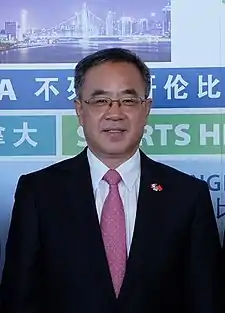 Hu Chunhua 胡春华 |
1963 | Vice Premier | Agricultural and rural affairs, anti-poverty, water resources, foreign trade | CCP | Member, 19th Politburo Member, SC Party Group |
国家防汛抗旱总指挥部总指挥 国务院抗震救灾指挥部指挥长 国务院扶贫开发领导小组组长 | |
| 5 | Liu He 刘鹤 |
1952 | Vice Premier | Finance, science and technology, industry and transport | CCP | Member, 19th Politburo Member, SC Party Group |
Director of the Central Financial and Economic Affairs Commission Office | |
| 6 | 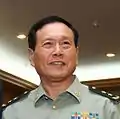 General Wei Fenghe 魏凤和 |
1954 | State Councillor | National defense mobilization, etc. | CCP | Member, 19th Central Committee Member, SC Party Group Member, Central Military Commission |
Member, Central Foreign Affairs Commission Director, 国家边海防委员会 | |
| 7 | Wang Yong 王勇 |
1955 | State Councillor | Emergency management, etc. | CCP | Member, 19th Central Committee Member, SC Party Group |
中央财经领导小组成员 国务院安全生产委员会副主任 国家减灾委员会主任 国务院残疾人工作委员会主任 全国老龄工作委员会主任 | |
| 8 | _(cropped).jpg.webp) Wang Yi 王毅 |
1953 | State Councillor | Foreign affairs | CCP | Member, 19th Central Committee Member, SC Party Group |
Member, Central Foreign Affairs Commission | |
| 9 | .jpg.webp) Xiao Jie 肖捷 |
1957 | State Councillor | In charge of the General Office | CCP | Member, 19th Central Committee Member, SC Party Group Secretary, SC Offices Party Group |
||
| 10 | .jpg.webp) Police Commissioner-General Zhao Kezhi 赵克志 |
1953 | State Councillor | Public security, etc. | CCP | Member, 19th Central Committee Member, SC Party Group |
Member, Central Political and Legal Affairs Commission Member, Central National Security Commission 国家禁毒委员会主任 国家反恐怖工作领导小组组长 国务院安全生产委员会副主任 | |
Plenary Meeting
The Plenary Meeting of State Council is hosted by the Premier, joined by Vice Premiers, State Councillor, Ministers (of Ministry), Ministers (in charge of Commissions), the Governor of People's Bank, the Auditor-General and the Secretary General. It usually runs bi-annually and when necessary, non-members can be invited to participate.
Organizational structure
General Office of the State Council
Constituent Departments of the State Council (cabinet-level)
Special Organization directly under the State Council
- State-owned Assets Supervision and Administration Commission of the State Council (SASAC) (国务院国有资产监督管理委员会), established in 2003
- Financial Stability and Development Committee (FSDC) (国务院金融稳定发展委员会), established 2017
Organizations directly under the State Council
- General Administration of Customs of the People's Republic of China (中华人民共和国海关总署)
- State Administration of Taxation (国家税务总局)
- State Administration for Market Regulation (国家市场监督管理总局)
- National Radio and Television Administration (国家广播电视总局)
- General Administration of Sport (国家体育总局)
- National Bureau of Statistics (国家统计局)
- China International Development Cooperation Agency (国家国际发展合作署)
- National Healthcare Security Administration (国家医疗保障局)
- Counsellors' Office of the State Council (国务院参事室)
- National Government Offices Administration (国家机关事务管理局), formerly the "Government Offices Administration of the State Council" (国务院机关事务管理局)
- National Press and Publication Administration (国家新闻出版署), additional name "National Copyright Administration" (国家版权局), a name reserved by the Publicity Department of the Chinese Communist Party
- National Religious Affairs Administration (国家宗教事务局), a name reserved by the United Front Work Department of the Chinese Communist Party
- Office for Safeguarding National Security of the CPG in the HKSAR (中央人民政府驻香港特别行政区维护国家安全公署)
Administrative Offices of the State Council
- Hong Kong and Macau Affairs Office of the State Council (国务院港澳事务办公室)
- State Council Research Office (国务院研究室)
Reserved Names
- Overseas Chinese Affairs Office of the State Council (国务院侨务办公室), a name reserved by the United Front Work Department of the Chinese Communist Party
- Taiwan Affairs Office of the State Council (国务院台湾事务办公室), under the CCP Central Committee
- Cyberspace Administration of China (国家互联网信息办公室), under the CCP Central Committee
- State Council Information Office (国务院新闻办公室), a name reserved by the Publicity Department of the Chinese Communist Party
Institutions directly under the State Council
|
|
State Administrations and Bureaus administrated by ministry-level agencies
- National Public Complaints and Proposals Administration (国家信访局), administrated by the State Council General Office
- National Food and Strategic Reserves Administration (国家粮食和物资储备局), administrated by the National Development and Reform Commission
- National Energy Administration (国家能源局), administrated by the National Development and Reform Commission
- State Administration for Science, Technology and Industry for National Defense (国家国防科技工业局), administrated by the Ministry of Industry and Information Technology
- State Tobacco Monopoly Administration (国家烟草专卖局) (officially sharing its office with China National Tobacco Corporation), administrated by the Ministry of Industry and Information Technology
- National Immigration Administration (国家移民管理局), administrated by the Ministry of Public Security
- National Forestry and Grassland Administration (国家林业和草原局), administrated by the Ministry of Natural Resources
- National Railway Administration (国家铁路局), administrated by the Ministry of Transport
- Civil Aviation Administration of China (CAAC) (中国民用航空局), administrated by the Ministry of Transport
- State Post Bureau (国家邮政局), administrated by the Ministry of Transport, officially sharing its office with China Post Group Corporation
- National Cultural Heritage Administration (国家文物局), administrated by the Ministry of Culture and Tourism
- National Administration of Traditional Chinese Medicine (国家中医药管理局), administrated by the National Health Commission
- National Mine Safety Administration (国家矿山安全监察局), administrated by the Ministry of Emergency Management
- State Administration of Foreign Exchange (国家外汇管理局), administrated by the People's Bank of China
- National Medical Products Administration (国家药品监督管理局), formerly China Food and Drug Administration (CFDA) (国家食品药品监督管理总局), now administrated by the State Administration for Market Regulation
- National Intellectual Property Administration (国家知识产权局), administrated by the State Administration for Market Regulation
Names Reserved
- National Civil Service Administration (国家公务员局), reserved by the Organization Department of the Chinese Communist Party
- National Archives Administration (国家档案局), i.e. the Central Archives (中央档案馆) (of the CCP), under the General Office of the CCP Central Committee
- National Administration of State Secrets Protection (国家保密局), i.e. the Office of the Central Secrecy Commission (中央保密委员会办公室) (of the CCP), under the General Office of the CCP Central Committee
- National Cryptography Administration (国家密码管理局), i.e. the Office of the Central Leading Group for Cryptography Work (中央密码工作领导小组办公室) (of the CCP), under the General Office of the CCP Central Committee
- State Language Commission (国家语言文字工作委员会), reserved by the Ministry of Education
- State Administration of Foreign Experts Affairs (国家外国专家局), reserved by the Ministry of Science and Technology
- China National Space Administration (国家航天局), reserved by the Ministry of Industry and Information Technology
- China Atomic Energy Authority (国家原子能机构), reserved by the Ministry of Industry and Information Technology
- State Oceanic Administration (国家海洋局), reserved by the Ministry of Natural Resources
- National Nuclear Safety Administration (国家核安全局), reserved by the Ministry of Ecology and Environment
- Certification and Accreditation Administration (国家认证认可监督管理委员会), reserved by the State Administration of Market Regulation
- Standardization Administration (国家标准化管理委员会), reserved by the State Administration of Market Regulation
See also
- Department of State Affairs in the Three Departments and Six Ministries system
- Ming dynasty: Central Secretariat → Grand Secretariat
- Qing dynasty: Grand Secretariat → Grand Council → Cabinet
- Republic of China: State Council (1912–28) → Executive Yuan (1928–present)
- People's Republic of China: Government Administration Council of the Central People's Government (1949–54); Ministries of the PRC
References
- Article 85 of the Constitution of the People's Republic of China
- "Government Revenue Growth Dips to More Than Three-Decade Low - Caixin Global".
- "The State Council". English.peopledaily.com.cn. Archived from the original on 2014-11-22. Retrieved 2018-01-18.
- "The State Council". Gov.cn. Archived from the original on 2017-11-14. Retrieved 2018-01-18.
- "Archived copy" (PDF). Archived from the original (PDF) on 2011-10-24. Retrieved 2011-12-04.CS1 maint: archived copy as title (link)
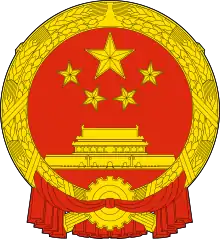
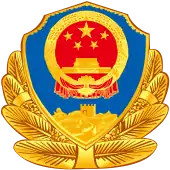
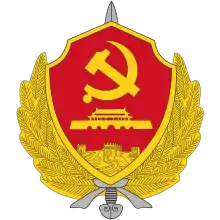
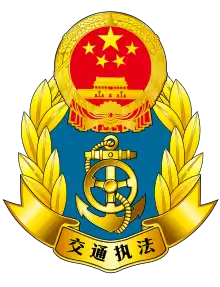

_01.jpg.webp)